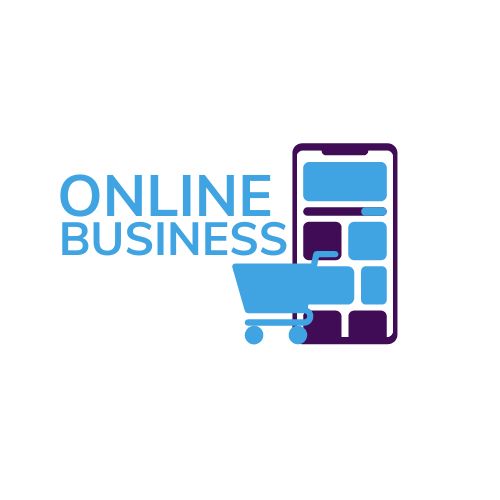Online Business (Waa Maxay Online Business)

An online business refers to any kind of business activity that primarily operates over the internet. This type of business model conducts its operations, sales, marketing, and transactions through digital platforms and websites rather than traditional physical storefronts.
Online businesses can encompass various forms, including:
- E-commerce: Selling products or services directly to consumers through online stores or marketplaces like Amazon, eBay, Etsy, etc.
- Digital products or services: Offering intangible goods or services such as software, ebooks, online courses, consulting, digital marketing, etc.
- Subscription-based models: Providing access to content, services, or products on a recurring subscription basis, like streaming platforms (Netflix, Spotify), SaaS (Software as a Service) businesses, subscription boxes, etc.
- Affiliate marketing: Earning commissions by promoting and selling other companies’ products or services through referral links or affiliate programs.
- Freelancing and remote work: Offering services or skills on a freelance basis, providing services like writing, graphic design, programming, virtual assistance, etc.
Online businesses often leverage digital marketing strategies, SEO (Search Engine Optimization), social media, content creation, and various online tools to reach their target audience and drive sales or engagement. They can operate on a global scale, reaching customers across different geographical locations, and often have lower operational costs compared to traditional brick-and-mortar businesses.
However, running an online business requires considerations for cybersecurity, user experience, e-commerce platforms, payment gateways, shipping logistics, and customer service among other things. Success in an online business typically involves understanding the online market, staying updated with technological advancements, and adapting to changing consumer behaviors and preferences in the digital space.
Advantages Of Online Business
Online businesses offer several advantages compared to traditional brick-and-mortar setups. Some of the key advantages include:
- Global Reach: Online businesses have the potential to reach a global audience. They are not limited by geographical boundaries, allowing access to customers worldwide.
- Lower Overheads: Online businesses often have lower startup and operational costs compared to physical stores. Expenses related to renting/buying physical space, utilities, and maintenance are significantly reduced or eliminated.
- Flexibility and Convenience: Operating online provides flexibility in terms of working hours and location. Business owners can manage their operations from anywhere with internet access, allowing for a more flexible work schedule.
- Cost-Effective Marketing: Digital marketing tools such as social media, content marketing, email campaigns, and SEO are generally more cost-effective than traditional advertising methods. They also offer precise targeting options to reach the desired audience.
- Improved Customer Insights: Online businesses can gather data and insights about customer behavior, preferences, and buying patterns. This information can be used to personalize marketing efforts and enhance the customer experience.
- Scalability: Online businesses have the potential to scale rapidly without the constraints of physical expansion. They can easily add new products or services and cater to a larger customer base.
- Accessibility and Convenience for Customers: Customers can shop or access services at any time, offering convenience and accessibility. This accessibility is particularly advantageous for businesses operating in different time zones.
- Reduced Time to Market: Launching products or services online often takes less time than traditional methods. Businesses can quickly introduce new offerings and test them in the market.
- Improved Customer Service: Online businesses can offer various customer service options such as live chat, email support, and FAQs, improving customer satisfaction and retention.
- Adaptability and Innovation: Online businesses can quickly adapt to market changes and trends, allowing them to innovate and stay competitive in rapidly evolving industries.
While online businesses offer numerous advantages, they also face challenges such as cybersecurity risks, intense competition, technological changes, and the need to continually adapt to evolving consumer preferences and market trends.
The Best Online Business For Beginners To Start In 2024
Disadvantages Of Online Business
While online businesses offer numerous advantages, they also face certain disadvantages and challenges:
- Cybersecurity Threats: Online businesses are susceptible to cyber attacks, data breaches, hacking, and other security threats. Protecting sensitive customer information and business data is crucial but can be challenging.
- Technical Issues: Dependence on technology means that online businesses are vulnerable to technical issues such as website crashes, server downtime, software glitches, or connectivity problems, which can disrupt operations and negatively impact customer experience.
- High Competition: The barrier to entry for online businesses is relatively low, leading to increased competition. Standing out in a crowded marketplace and gaining visibility among competitors can be challenging.
- Customer Trust and Credibility: Some customers may be hesitant to trust online businesses, especially new or lesser-known ones, due to concerns about security, reliability, or the lack of physical presence.
- Logistics and Shipping Challenges: Managing logistics, shipping, and inventory can be complex, especially for businesses dealing with physical products. Issues related to shipping costs, delivery delays, and international shipping regulations can arise.
- Dependency on Internet Infrastructure: Online businesses heavily rely on internet infrastructure. Issues such as internet outages or disruptions can significantly impact operations and sales.
- Digital Marketing Complexity: While digital marketing offers various advantages, navigating through the complexities of online advertising, SEO, social media algorithms, and changing trends requires.
Tools Of Online Business
Online businesses utilize various tools and software to manage operations, streamline processes, enhance productivity, and improve customer interactions. Here are some essential tools commonly used in different aspects of online business:
- Website Creation and Management:
- Website Builders: WordPress, Wix, Squarespace, Shopify (for e-commerce), Weebly.
- Web Hosting: Bluehost, SiteGround, HostGator, AWS (Amazon Web Services), Google Cloud Platform.
- Content Management Systems (CMS): WordPress, Joomla, Drupal.
- Digital Marketing and Analytics:
- SEO Tools: SEMrush, Moz, Ahrefs, Google Analytics.
- Email Marketing: Mailchimp, Constant Contact, HubSpot, ConvertKit.
- Social Media Management: Hootsuite, Buffer, Sprout Social.
- Pay-Per-Click (PPC) Advertising: Google Ads, Facebook Ads Manager, LinkedIn Ads.
- Analytics and Insights: Google Analytics, Kissmetrics, Crazy Egg.
- E-commerce and Online Selling:
- E-commerce Platforms: Shopify, WooCommerce (WordPress plugin), BigCommerce, Magento.
- Payment Gateways: PayPal, Stripe, Square, Authorize.Net.
- Inventory Management: TradeGecko, Stitch Labs, Skubana, DEAR Systems.
- Shipping and Fulfillment: ShipStation, Shippo, Easyship, ShipBob.
- Customer Relationship Management (CRM):
- CRM Software: Salesforce, HubSpot CRM, Zoho CRM, Pipedrive.
- Help Desk and Support: Zendesk, Freshdesk, Help Scout, Intercom.
- Project Management and Collaboration:
- Project Management Tools: Asana, Trello, Monday.com, Jira.
- File Sharing and Collaboration: Google Workspace (formerly G Suite), Microsoft 365, Slack, Zoom.
- Financial and Accounting Tools:
- Accounting Software: QuickBooks, Xero, FreshBooks, Wave.
- Invoicing and Payments: FreshBooks, Zoho Invoice, PayPal Invoicing.
- Cybersecurity and Data Protection:
- VPN Services: NordVPN, ExpressVPN, CyberGhost.
- Antivirus and Malware Protection: Norton, McAfee, Bitdefender.
- Password Management: LastPass, Dashlane, 1Password.
- Content Creation and Design:
- Graphic Design: Adobe Creative Cloud (Photoshop, Illustrator, InDesign), Canva, PicMonkey.
- Video Editing: Adobe Premiere Pro, Final Cut Pro, iMovie, Filmora.
- Content Creation: Grammarly, Hemingway Editor, CoSchedule Headline Analyzer.
- Customer Feedback and Surveys:
- Survey and Feedback Tools: SurveyMonkey, Typeform, Google Forms, Qualtrics.
- Legal and Compliance:
- Legal Services: LegalZoom, Rocket Lawyer.
- GDPR Compliance: OneTrust, TrustArc.
- What Is Technical Analysis
How You Can Start Online Business
Starting an online business involves several key steps. Here’s a guide to help you get started:
- Identify Your Business Idea: Choose a product or service that interests you and fills a need in the market. Conduct market research to understand your target audience, competition, and the demand for your offering.
- Create a Business Plan: Outline your business goals, target market, revenue streams, marketing strategies, operational plan, and financial projections. A solid business plan serves as a roadmap for your venture.
- Choose a Business Model: Decide on the type of online business model that suits your product or service—whether it’s e-commerce, digital products, subscription-based, affiliate marketing, freelancing, etc.
- Select a Unique Business Name and Domain: Choose a memorable and relevant name for your business. Check for domain availability and register a domain name that aligns with your business name.
- Set Up Your Online Presence:a. Create a professional website: Design a user-friendly and visually appealing website that showcases your products or services. You can use website builders like WordPress, Shopify, or hire a web developer if needed.b. Develop a robust online strategy: Plan your online marketing approach, including SEO, social media marketing, content creation, email marketing, and PPC advertising, based on your target audience.
- Establish Your Brand: Develop a unique brand identity, including a logo, color scheme, and brand voice that resonates with your target audience.
- Ensure Legal and Regulatory Compliance: Research and comply with legal requirements for your business, such as business licenses, permits, taxes, and GDPR or other data protection regulations if applicable.
- Set Up Payment and Shipping Methods: Choose secure and convenient payment gateways for transactions. If you’re selling physical products, arrange shipping methods and policies.
- Build Your Product or Service: Develop or source your products or services, ensuring quality and meeting customer expectations.
- Launch and Promote Your Business: Once everything is set up, launch your business and start promoting it through your chosen marketing channels. Utilize social media, content marketing, and other strategies to attract your target audience.
- Provide Excellent Customer Service: Establish effective customer service channels to address inquiries, feedback, and complaints promptly. Positive customer experiences can lead to repeat business and referrals.
- Monitor and Adapt: Continuously analyze your business performance, customer feedback, and market trends. Adapt your strategies accordingly to improve and grow your online business.
Remember that starting an online business requires dedication, perseverance, and ongoing effort. Stay adaptable and willing to learn from both successes and failures to grow your venture successfully.
DHAMAAD
Hadii aad intaan soo gartay waad guulesatay, waxaan ku rajayna inaa maqaalkan/ article kan wax ka faidi doontid illah idinkiis, waxii su’aalo ah qeybta comment no ku reeb ama tobic aad jaceshahay inaa kaso hadalno Insha allah. THANK YOU YOUR VISIT.





